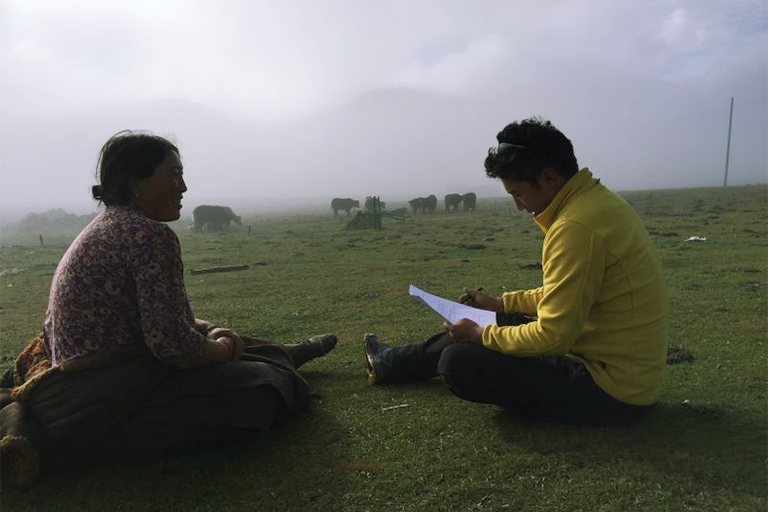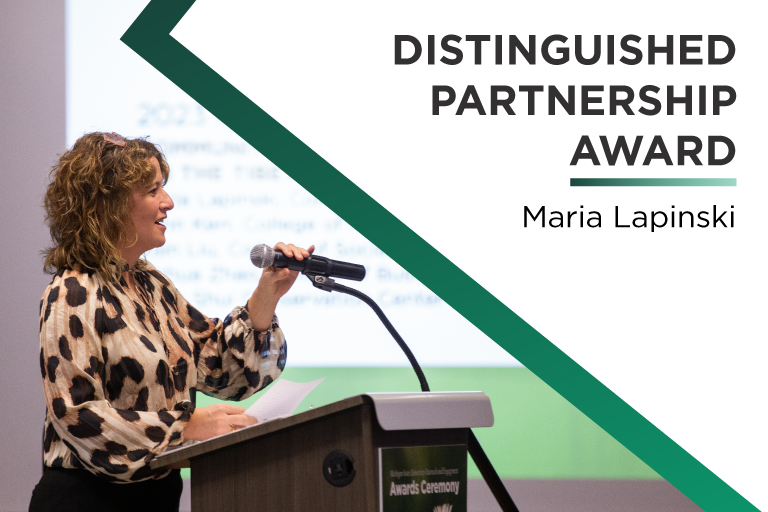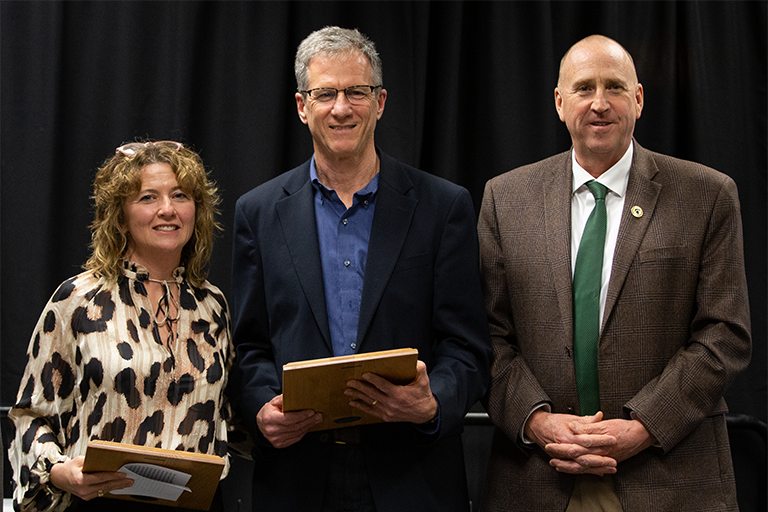Professor Maria Lapinski and her research team of nearly a decade (John Kerr, Jinhua Zhao, Rain Liu, Lu Zhi, Tsering Bum) received the Distinguished Partnership Award for International Community Engagement at the Michigan State University Outreach and Engagement Awards Ceremony, March 2, 2023. The award recognizes years of collaboration with conservation groups and local populations in Western China. Lapinski's work was also recognized as part of the All-University Awards at MSU on May 8, 2023 where she received the Community Engagement Scholarship Award.
Influencing prosocial behaviors
There are certain actions that are generally considered “good” for one’s health, for the environment, for society. Whether human beings choose to do those things naturally is another matter; the reasons for engaging in (or not engaging in) a behavior are likely to vary.
But what if there were an incentive — perhaps financial in nature — how might that change how a group of people feel about that action? Will it be considered the “right” thing to do, and should everyone be doing it?
“That’s where it all started,” said Maria Lapinski, professor in the Department of Communication and director of the Health and Risk Communication Center (HRCC). “There was a group of people who were interested in bringing together the literature from economics and communication science to answer the question of: when you have a short-term payment for behavior and then you remove that payment, what happens to the social system? What changes have been made? Do you have to pay people every time you want them to do something prosocial? What happens to the social norms of the community?”
The multi-disciplinary team (John Kerr, Professor, Department of Community Sustainability, College of Agriculture and Natural Resources; Jinhua Zhao, College of Business, Cornell University; Rain Liu, Department of Communication, University of Arizona) and partners at Beijing University’s affiliated Shan Shui Conservation Center have now been working together for close to 10 years, seeking answers to these questions.
“I’m always interested in what the best ways are to promote prosocial behavior,” said Lapinski, whose research focuses on the ways in which communication can influence environmental or health-related decisions. “The social norms element of this is where I come in. My colleagues in economics were the people who really brought in the incentive side of things … we’ve spent a lot of time developing a theoretical model for how this works. Our colleagues at Shan Shui bring the conservation knowledge.”

Community Engagement with Pastoralists on the Tibetan Plateau
Working with a core team here at MSU, the team at the Shan Shui Conservation Center and partners within the communities of the Tibetan Plateau, the group aimed to help protect ecosystems and animal populations in the region via conservation work.
“The region where the team works is a very ecologically important area because it’s the headwaters of the three major rivers in Asia. The ecosystem there basically shapes water quality all the way downstream,” Lapinski said. She notes that there is a lot of iconic wildlife, animals and plants that contribute to the health of the ecosystem. “That was another motivation — we felt like ecologically it’s an important place. The population that lives in that region, nomadic, ethnically Tibetan pastoralists … there’s research data showing a strong conservation ethic among people living in this region, particularly this population. We were interested in learning more about that as well; the basis for that and understanding how it motivates the decisions that they make.”
The team has published several studies on their findings so far and have developed a set of conservation recommendations based on their work, available on the HRCC website.
“The overarching message of our work is really the sort of excitement of interdisciplinary collaboration and its ability to answer a very practical question like this,” Lapinski said. “We were able to address this complex issue and come up with some tangible recommendations for how incentive-based conservation programs could be implemented in a way that’s likely to support conservation behaviors over the long term, rather than cause problems in the system.”
Lapinski said she is grateful to her colleague, Jim Dearing, for submitting the nomination, and to MSU for having the mechanism to be able to recognize how many people are involved in a project of this nature. “It’s not just me, it’s a team effort,” she said. “It’s really gratifying that this work is being recognized with this award because it’s something that we’ve been excited about and passionate about for years.”
—Jessica Mussell

